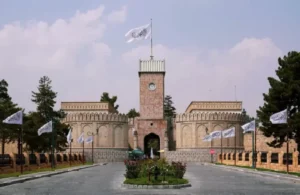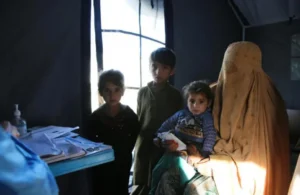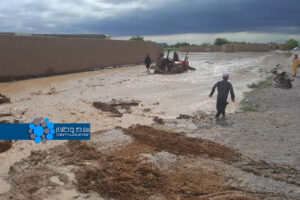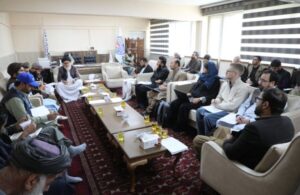GHOR (SW) – Wakil Ahmad, a 20-year-old resident of Ghor province, fled to Iran via the Nimroz border about six months ago with high hopes, only to be captured and deported.
Narrating his ordeal, Ahmad said it took him at least ten days of hunger and thirst, passing through treacherous territory after enduring humiliation and torture directed at him by the human smugglers to make it to Isfahan in Iran.
One evening, he was on his way home after a tiring day at work at a construction site in Isfahan when police caught him. He told Salam Watandar that Iranian police had hanged him upside down for two days and nights and had sprayed tear gas on his eyes.
Wakil said he went to Iran to work and improve his family’s economic situation, but was arrested by the Iranian police because he did not have legal residency documents.
He is not alone to undergo this painful journey of irregular migration with a bitter end. Many Afghan youngsters have been through it.
Naqibullah is a 25-year-old resident of Sar-e-Pul province who also immigrated to Iran irregularly.
He said he left for Iran via Nimroz three months ago, but after staying there for a little over a week, he was captured by Iranian police and returned to Afghanistan. Naqibullah sustained a serious injury during this trip, and can still not walk properly on one of his feet.
War, poverty and unemployment in the country have compelled many young people to travel on the risky routes of irregular migration.
Meanwhile, Jawad Amid, a civil society activist in Herat, criticized the Iranian police for their inappropriate treatment of Afghan refugees, saying that the Iranian government used refugees as a tool whenever it wanted to put pressure on the Afghan government.
Commenting on this, Ahmad Javed Nadim, director of refugee and returnee affairs in Herat, told Salam Watandar that the government has launched a series of public awareness campaigns to prevent irregular migration, which have yield positive results.
Nadim said that since the beginning of this year, about 300,000 Afghans have been voluntarily and forcibly repatriated from Iran through the port of Islam Qala alone.
According to him, between 2,000 and 5,000 Afghans enter the country every day through the port of Islam Qala, of which 40 percent are forcibly repatriated by the Iranian government.
The Iranian consulate in Herat, however, claims that Afghans who enter Iran without documents will be repatriated.
According to the International Organization for Migration (IOM), one in three Afghans has experienced irregular migration in the last six years. In this context, Iran remained the destination choice for 48 percent, Pakistan for 31 percent and Saudi Arabia for 9 percent with Germany and the United Kingdom following.
ENDS









